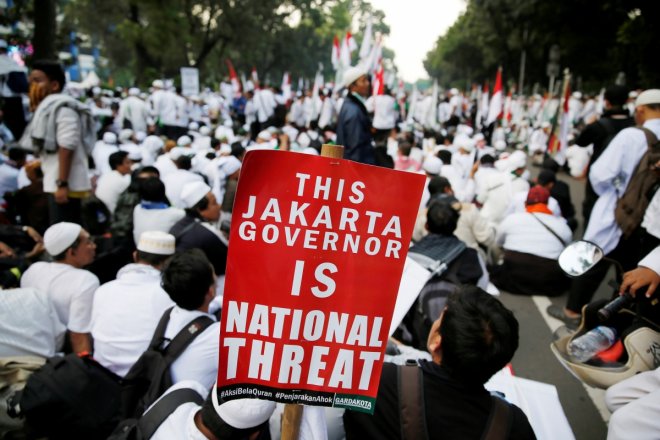
Amnesty International has asked Indonesia to drop the blasphemy probe against Jakarta's Chinese Christian Governor Basuki "Ahok" Tjahaja Purnama.
Ahok was in the limelight in the last few weeks after hardline Islamist organisations demanded his ouster and held a rally in capital Jakarta that turned violent.
"By carrying out a criminal investigation and naming Ahok as a suspect, the authorities have shown they are more worried about hard-line religious groups than respecting and protecting human rights for all," Amnesty International said in a statement.
Governor Ahok was accused of misquoting a verse from the Quran during one of his speeches in September. Ahok allegedly criticised his opponents for citing a verse in the Quran which warns Muslims against forming an alliance with Christians and Jews saying that they were "lying". This led to an outrage and the governor was accused of criticising the Islamic holy text.
The hardliners in the country said this was blasphemy and wanted the governor's scalp. The Islamic Defenders Front (FPI), which is in the forefront of attacks against Christian and Hindu minorities and the gays and the lesbians, was the chief organizer of a violent anti-Ahok rally in Jakarta on November 5.
One person died as the rally turned violent, while dozens of police vehicles were torched. There have been questions if President Joko Widodo had given a clear and stern warning against the rise of radical groups and the intolerance they preach.
Widodo condemned the violence and cancelled a visit to Australia. But on Wednesday the blasphemy case took an unexpected turn after police announced that the Christian leader has been named as a suspect in the case.
If the charges are pressed and proved in the court, Ahok could be jailed for up to five years.
The human rights watchdog's director for Southeast Asia and the Pacific, Rafendi Djamin, said Basuki's naming as a suspect is a controversial step. "Indonesia prides itself on its image as a tolerant country. This case would set a deeply worrying precedent, making it hard for the authorities to argue that they respect all faiths," he said.








